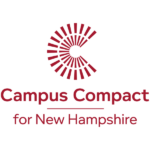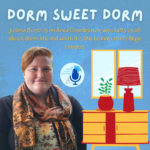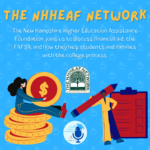Related Content

Events
Rural Conversations

Navigate: A Road Map for New Hampshire S

Podcasts
Dorm Sweet Dorm

Podcasts
Solidly Scholarly

Podcasts
Legally Speaking

Podcasts
The NHHEAF Network

Podcasts
Hairs to You

Podcasts
Admissions Advice

Podcasts
United We Serve

Podcasts
Talking TRIO
Aligning Institution to Community
Colleges and universities are anchor institutions in their communities. To adopt an anchor mission entails adopting a strategy to leverage institutional assets. Ways to leverage economic assets and revenues to promote local private-sector development include: Directing a greater percentage of purchasing power toward local and minority vendors based in the community. Hiring a greater percentage of the workforce locally. Providing workforce training for people needing assistance in the community. Incubating the development of new businesses, including social enterprise among nonprofits. Leveraging real estate development to promote local retail, employer-assisted housing, and community land trusts. Using pension and endowment funds to…
Increasing College Access
Higher education is the bedrock of a just, equitable, and sustainable future. Understanding that higher education institutions are responsible for preparing students to be engaged citizens, we together strive for the highest possible level of inclusivity. College access is central to this inclusivity, making possible a strong, healthy, active democratic society. One of a wide range of Knowledge Hubs from Campus Compact, Increasing College Access offers models, best practices, and resources for increasing college access.
Principles of Best Practice in Community Service Work Study
This guide outlines best practices in combining college and university work-study experiences with community service and service-learning. Ten principles were created after conducting focus groups with practitioners from 52 colleges and universities that help construct an effective community service work-study program. Specific examples are included.
Best Practices: Service-learning in Teacher Education in New Hampshire
This review of best practices covers the support and recognition that faculty in teacher education programs need to feel comfortable integrating service-learning into their curriculum in order for maximum engagement. In addition, the individuals who will be working with the preservice teachers and the preservice teachers must be trained in understanding service-learning as a philosophy and pedagogy.
Service-Learning and Retention
When institutions help students have a positive, substantive growth experience in the first year of college, their success and persistence are enhanced. This presentation reviews the factors that affect student persistence and how service-learning can help at-risk students remain in college. See Service-Learning and Retention, a presentation by Dan Forbes, MSW, Director of Service Education, Meelia Center for Community Engagement, Saint Anselm College
NH College Access Forum Keynote Address
Major change is difficult in higher education. But to meet changing student demographics and expectations, change is necessary. This substantive keynote address from the CCNH/NHCUC College Access Forum explores how New Hampshire colleges and universities can change–by adopting policies that expand student access to and success in college. See the keynote address by Dr. Wanda Mitchell, Vice Provost for Faculty Development and Inclusive Excellence at the University of New Hampshire.
Confronting Student Success Challenges
Under what circumstances do student learn? What are the conditions that promote learning and success? This presentation, from Campus Compact for New Hampshire’s retreat on college success, explores these questions and more. See Confronting Student Success Challenges, a presentation by Jillian Kinzie, IU Center for Postsecondary Research.
Guide to Student Leadership Through Service
The primary focus of this guide is to bring students into leadership roles while they are performing service. Taking on a leadership role as an active student involved in service is a wonderful way to develop real-life skills and knowledge while still being in college. Students who move beyond participating in community service projects into planning and coordinating these projects gain excellent skills in organization, project planning, team building, and leadership.
Creating, Running, and Sustaining Campus-Community Service-Learning Partnerships
Campus-community partnerships are an essential element in community service-learning. Partnerships are the structure for identifying community needs, developing appropriate student projects, fostering experiential education, carrying out required planning and logistics and sharing feedback on the process and results. Because of their importance, the elements of successful campus-community partnerships have gotten a lot of attention; however, less has been done to identify “best” or even “promising” practices that are used to create, run and sustain good partnerships. The purpose of this handbook is to record and share the voices of partnership practitioners on what they have done that has worked well…
Community Partner Toolkit
Developing innovative learning strategies and vehicles to enhance academic experiences is an ongoing challenge to higher education. The spectrum of student employment opportunities––Federal Work-Study, internships, volunteering, etc.–– are viewed as helpful tools in this regard as they address the needs of all parties in varying degrees of commitment and structure. The Federal Work-Study program offers the most structured framework to off campus agencies, organizations and companies interested in entering high-level, committed partnerships with educational institutions in order to access subsidized student employment. This Community Partner Toolkit is designed to introduce community partners to the basic tools needed to work with…
 -->
-->
